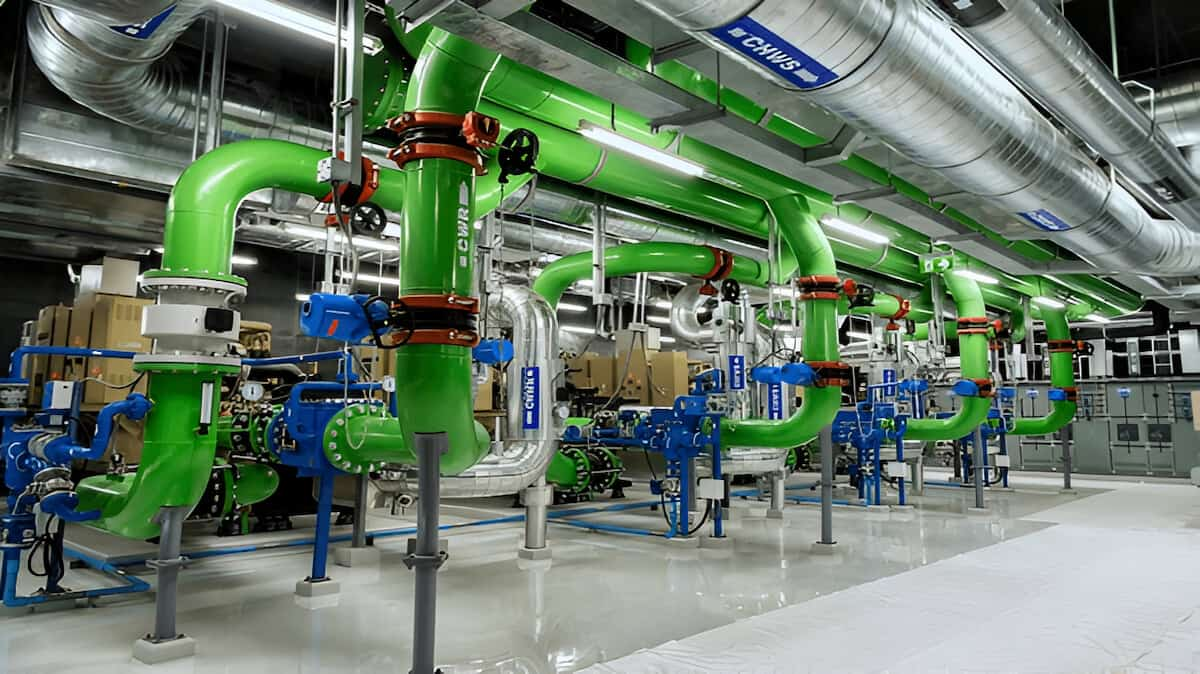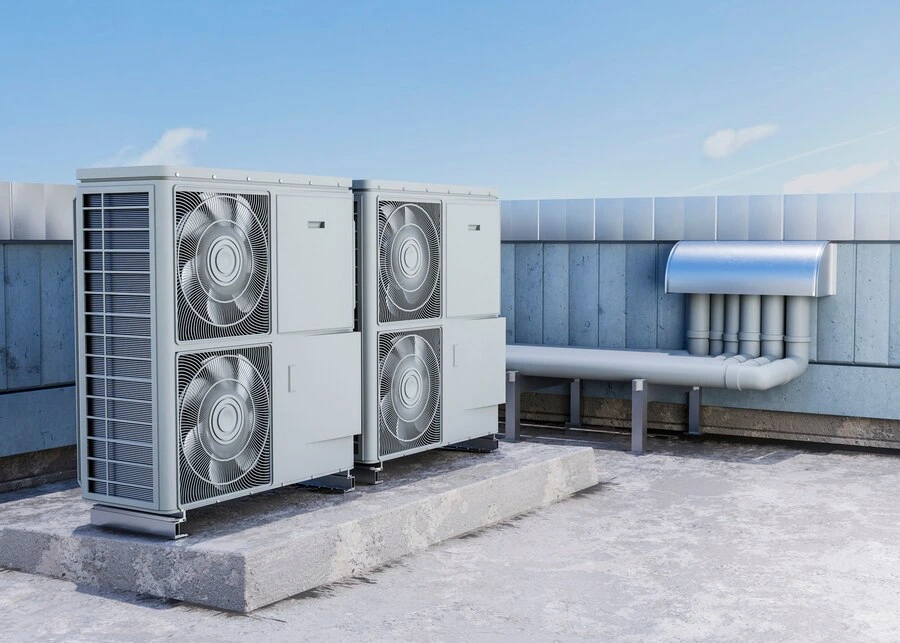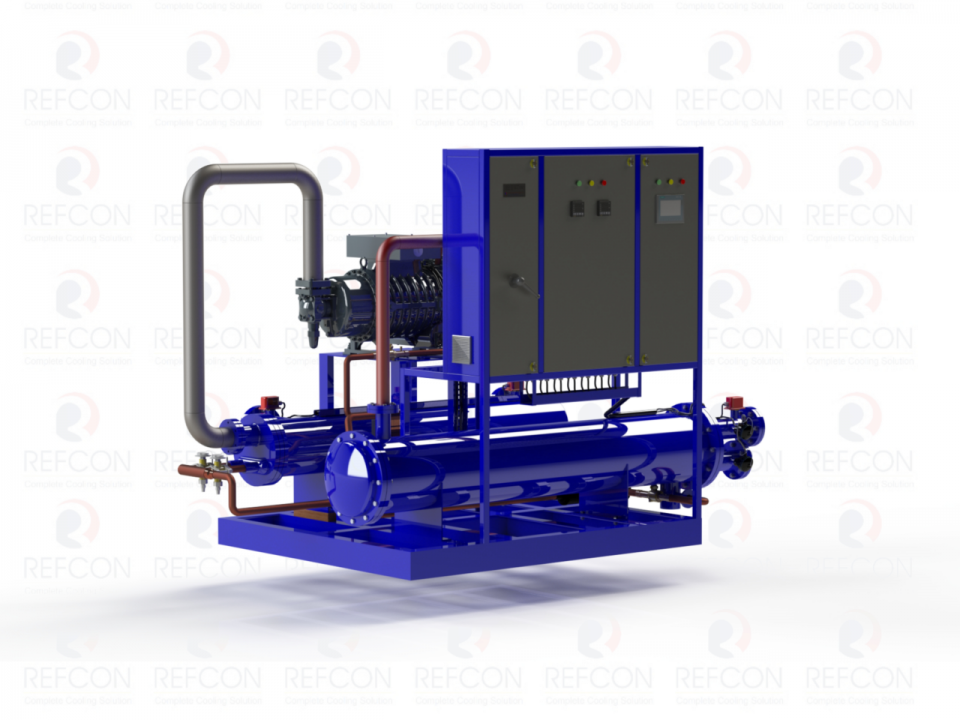How HVAC Plants in Industrial Settings Improve Efficiency, Comfort, and Productivity
In industrial settings, it is crucial to maintain the right environment for optimal performance and productivity. HVAC plants (Heating, Ventilation, and Air Conditioning) help achieve this by controlling temperature, humidity, and air quality. These systems improve comfort, boost efficiency, and increase productivity. This blog will explore the benefits of various types of chillers HVAC in industrial environments.
Key Takeaways
- HVAC plants help regulate temperature, air quality, and humidity in industrial settings, ensuring optimal conditions for both workers and equipment. This leads to improved productivity and comfort.
- Advanced HVAC and refrigeration products reduce energy consumption, cutting operational costs. Energy-efficient systems help businesses save money and lower their carbon footprint.
- Proper HVAC systems improve indoor air quality by filtering out pollutants and ensuring compliance with health standards, particularly in industries like pharmaceuticals.
- Regular maintenance of HVAC plants is essential for prolonging equipment life and maintaining efficiency. Properly maintained systems guarantee reliable performance and minimize downtime.
Understanding HVAC Plants in Industrial Settings
HVAC systems are designed to control heating, ventilation, and cooling. In industrial settings, these systems include various components, such as heaters, coolers, ventilation units, and air filters. These components work together to maintain the right environment for employees and equipment.
HVAC plants are larger and more complex than residential systems. Their main job is to keep factory floors, warehouses, and other industrial areas at the right temperature and air quality. The HVAC plant diagram shows how these components work together to provide a balanced environment.
Enhancing Energy Efficiency
Energy use is a major cost in industrial operations. HVAC plants are designed to reduce energy consumption. Modern HVAC and refrigeration products are built with energy efficiency in mind, helping to lower utility bills.
Automation and smart thermostats allow for better control of temperature. These systems can adjust based on real-time conditions, using energy only when needed. Advanced systems may include energy recovery features that reuse waste heat, cutting the need for extra heating or cooling. An efficient HVAC plant reduces operational costs and saves energy.
Maintaining Optimal Indoor Air Quality
Good air quality is important in industrial settings. HVAC systems help keep the air clean by filtering out dust, pollutants, and gases. Clean air reduces health risks for workers and ensures a better work environment.
For industries like pharmaceuticals, air quality is especially crucial. The importance of HVAC system in pharmaceutical industry is high, as maintaining clean air is essential for both worker safety and product quality. With effective filtration, companies can also meet health and safety standards like OSHA regulations.
Ensuring Comfortable Work Conditions
Comfort is key to employee productivity. HVAC plants keep temperatures and humidity at optimal levels, ensuring a stable and comfortable work environment. In summer, air conditioners cool factory floors, while heaters provide warmth in the winter.
Comfortable conditions reduce stress and fatigue. This improves morale, helping workers stay focused on their tasks. Studies show that a comfortable workplace can boost productivity by reducing absenteeism and fatigue. By investing in reliable HVAC systems, companies can support both employee well-being and performance.
Boosting Productivity in Industrial Environments
When workers are comfortable, they are more productive. A well-maintained HVAC plant can improve worker concentration and performance. A stable environment reduces stress, helping workers stay engaged and focused.
Comfortable work environments lead to fewer sick days and lower turnover. Research shows that workplaces with efficient HVAC systems can increase productivity by up to 15%. In high-focus industries, such as pharmaceuticals or manufacturing, this boost in productivity is significant.
Supporting Process Efficiency and Equipment Longevity
HVAC systems help protect machinery and equipment. Many industrial processes rely on precise temperature and humidity levels to work correctly. HVAC plants help regulate these conditions, preventing machines from overheating or becoming damaged by excess moisture.
By maintaining consistent temperature control, HVAC systems improve process efficiency. Equipment lasts longer because it operates in the best possible conditions. This reduces maintenance costs and ensures that production runs smoothly.
Sustainability and Environmental Considerations
As sustainability becomes more important, many industries are adopting green technologies. HVAC plants can support these efforts by using renewable energy sources like solar or geothermal. These systems help reduce reliance on non-renewable energy, lowering carbon footprints.
The importance of industrial HVAC provides energy-efficient HVAC systems to minimize waste and reduce energy use. By adopting sustainable HVAC solutions, companies can meet their environmental goals while improving energy efficiency.
Innovations in HVAC Technology for Industrial Use
HVAC technology is constantly evolving. New innovations, like smart HVAC systems and IoT (Internet of Things) integration, are improving industrial HVAC systems. These technologies allow for better temperature control, automation, and predictive maintenance.
Smart HVAC solutions adjust settings based on real-time data, using energy more efficiently. These innovations also help prevent system breakdowns by providing early warnings of potential issues. As technology continues to improve, industrial HVAC systems will become even more efficient and effective.
Regular Maintenance and Its Impact
Routine maintenance is key to keeping an HVAC plant running smoothly. Regular checks, like cleaning filters and checking for leaks, prevent system failures and extend the life of the equipment.
Preventive maintenance helps avoid costly repairs. It also guarantees that the HVAC system runs at optimal efficiency, conserving energy and lowering operational costs. Regular care and attention to your HVAC system are essential for long-term performance.
Conclusion
HVAC plants are vital in industrial settings for improving efficiency, comfort, and productivity. These systems help maintain energy efficiency, improve air quality, and ensure comfortable working conditions. They also protect equipment and support sustainability goals.
Investing in quality HVAC systems and ensuring regular maintenance can lead to long-term benefits for industrial facilities. Companies should consider upgrading their systems to improve operations, reduce costs, and boost productivity.
For businesses looking to improve their industrial HVAC systems, HVAC and refrigeration companies like Refcon Chillers offer high-quality solutions. Refcon Chillers is a leading provider of high-quality HVAC and refrigeration products.
We specialize in manufacturing energy-efficient HVAC chillers that are suitable for various industrial settings. As trusted HVAC and refrigeration companies, we offer reliable solutions to enhance system efficiency and reduce energy costs.
Refcon plays a key role in supporting industrial operations. Refcon Chillers is one of the top-tier chiller manufacturers providing products to optimize comfort and productivity. Contact us today to get in touch with us for your scroll chiller or brine chiller needs!






